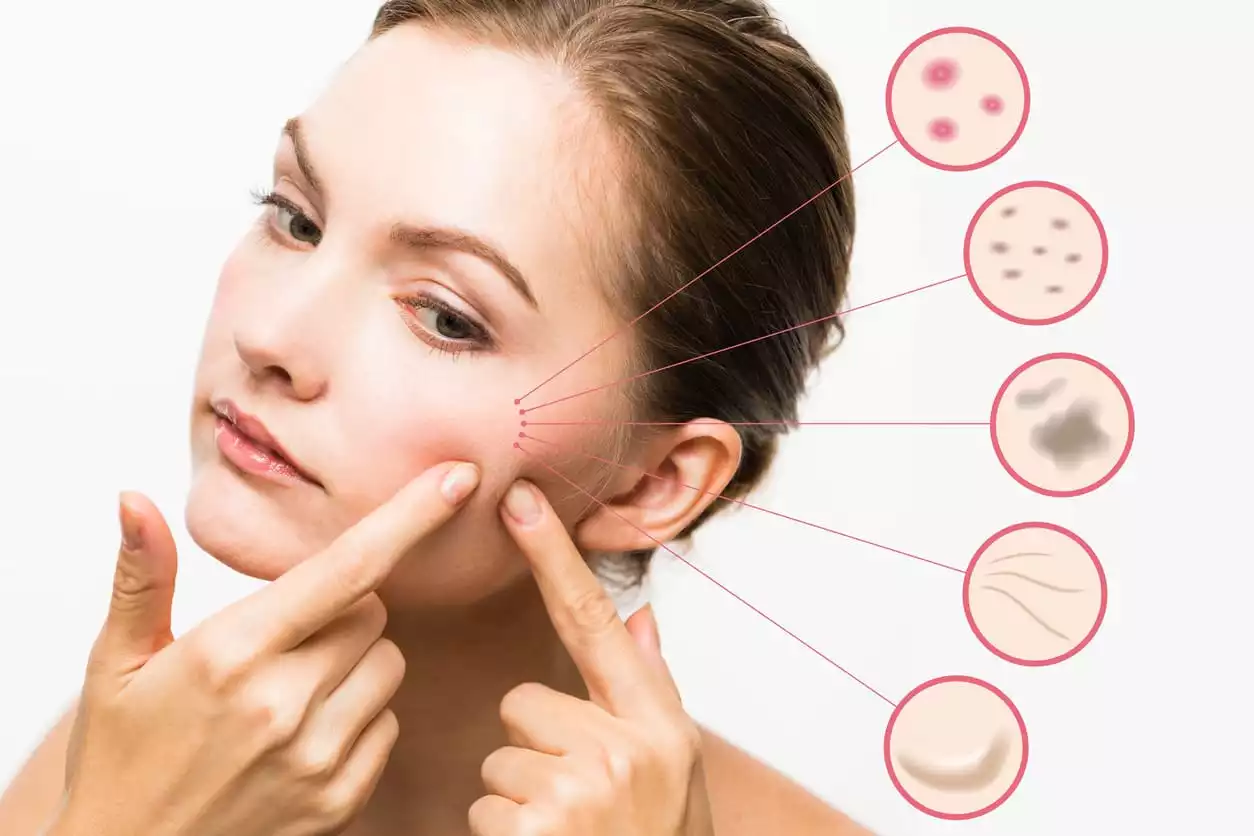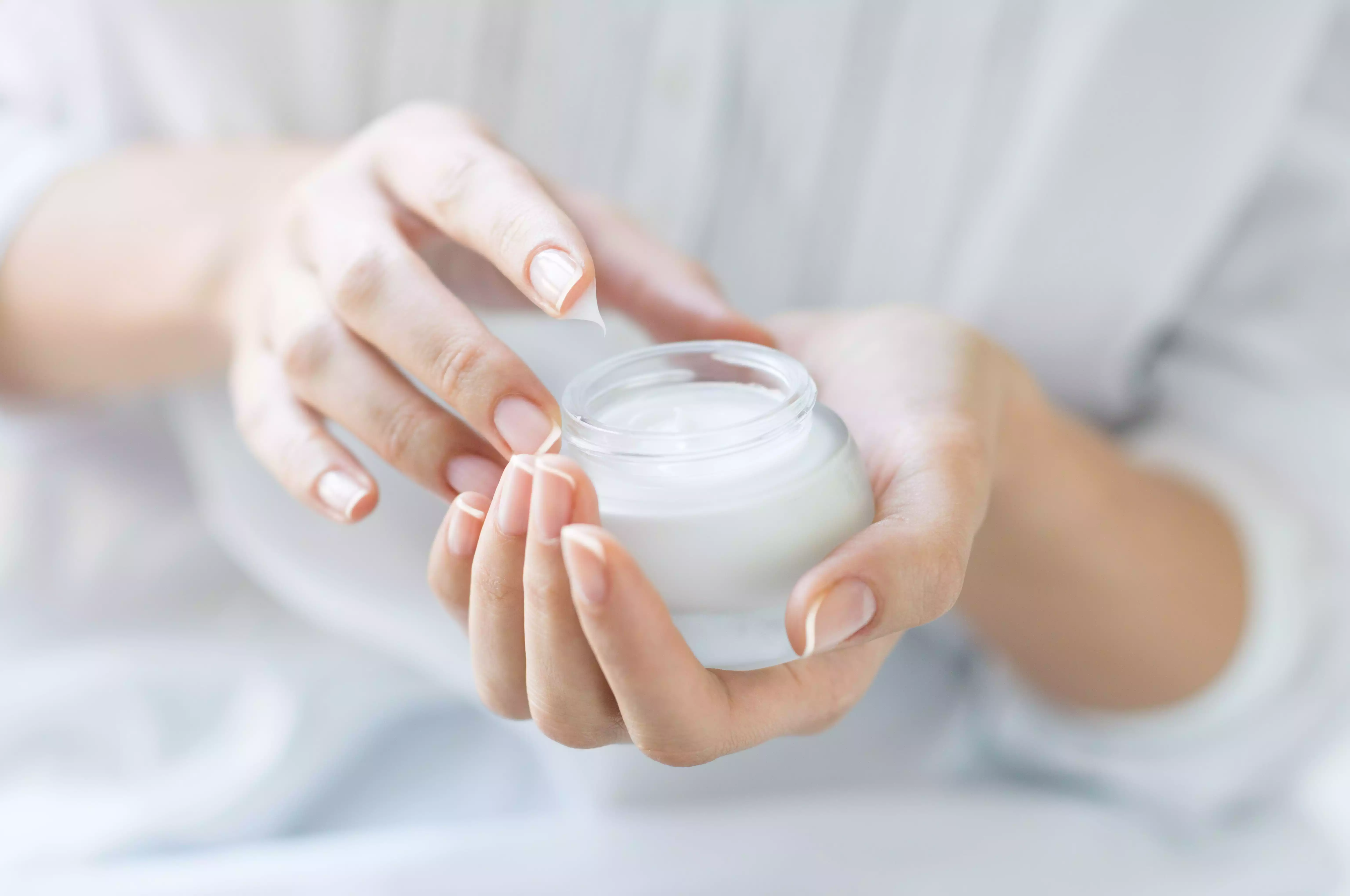
November is National Healthy Skin Month, which means it’s time to treat yourself! To celebrate, we’ll discuss how to maintain healthy skin, and the benefits of compounded cosmetics.
Happy National Healthy Skin Month! Did you know your skin is your body’s largest organ?
Your skin needs your attention all year, but more so during the crisp fall and winter months. In this post, we’ll share a few skin facts and reveal how compounded cosmetics can help you look (and feel) your very best.
Here’s to your wellness!
A Closer Look at Your Skin
If you’re like so many others, you probably don’t give much thought to your skin until you have an injury, dry patch, or some other related skin condition.
The average adult’s skin takes up approximately 18.5 square feet and contributes about 15 percent to our body weight.
-
Touch
The nerves in your skin are responsible for helping your body to distinguish touch. This means it feels not only different levels of pressure, but it can send the signals that help you to feel textures, too.
These same nerve endings help your skin send signals to your body about pain.
-
Temperature
One of your skin’s most important jobs is to regulate your internal temperature. It acts as a thermostat of sorts, turning on your sweat glands to help cool you down when your temperature rises.
When it is cold out, your skin’s blood vessels constrict and close off, keeping your warm blood away from your skin so that you don’t lose body heat.
-
Overall Health
Your skin can tell you a lot about your overall health. Hives, dry skin, and other skin symptoms are one of the biggest indicators of poor health, often manifesting even before other symptoms in a long list of diseases.
One of the biggest concerns for the skin itself is cancer (also known as melanoma). The American Academy of Dermatology recommends regular skin checks, especially if you have a lot of moles, skin discolorations, freckles, or age spots. Early detection is critical to successful treatment outcomes.
Tips for Taking Care of Your Skin This National Healthy Skin Month
Your skin serves in so many important roles that taking care of it seems small in comparison.
Here’s a few tips to help you keep it healthy and functioning well:
- Wash your skin daily at least once, especially after exercise.
- Always wash your face before bed at night. This wipes away impurities and toxins and allows your body to heal your skin naturally as you sleep.
- Use a daily moisturizer to help your skin stay hydrated from the outside.
- Drink plenty of water to promote hydration from the inside.
- Wear sunscreen (SPF 30 or higher) every single day. The angle of the sun changes in the winter, but it can still damage your skin.
- Make sure your shoes fit properly to prevent damage to the feet on your skin. This may help to prevent painful blisters and corns.
- Regularly check your skin for new blemishes, changes in your moles, or any skin changes. If you find anything, speak with your physician.
Your Skin and Compounded Cosmetic Products
As your skin ages, it begins to lose elasticity, causing it to to become dry, thin, and even wrinkled with discolored age spots. Add skin conditions like adult acne or eczema into the mix and it feels nearly impossible to stay on top of your skin’s health.
Many people will, over time, try hundreds of dollars worth of skin care products in an attempt to battle the aging process.
What if you could turn to just one or two products to get the job done, instead of having to use several in a protracted morning routine?
The secret to treating your skin care woes is compounded skin care products.
Here’s a few of our most commonly-used compounded formula ingredients for skin wellness to learn this National Healthy Skin Month.
-
Alpha Lipoic Acid (ALA) –
An enzyme that serves as an antioxidant when applied topically.
-
Ascorbyl Palmitate (Vitamin C Ester) –
a molecule derived from ascorbic acid. It infuses the skin with both vitamin c and essential fatty acids. C Ester acts as a preservative and antioxidant and helps to better blend vitamins A, C, and D into the skin.
-
Retinol or Tretinoin –
Both are vitamin A analogues that help improve skin texture and reverse the signs of sun damage.
-
Amino Acids –
Essential fatty acids that support collagen production and the development of elastin for smoothness, freshness, and youthfulness.
-
Hyaluronic Acid –
An acid that helps your skin retain water, creating a plumping effect that smoothes out fine lines.
The Value of Combination Formulas
Most of the additives found in over-the-counter skin care products are for cosmetic purposes alone. Retinol, for example, plays a huge role in rejuvenating the skin gradually over time, but its benefits are greatly enhanced when it is mixed with alpha lipoic acid.
Examples of Combination Compounded Cosmetic
Some skin care products can be compounded to support therapeutic and aesthetic needs and desires.
For example, your doctor may recommend a topical corticosteroid for inflammation during an eczema flare-up, but ask that it be compounded into a daily moisturizer with UV protection to combat dry, cracked skin.
Similarly, combination products work well for old acne scars, pregnancy stretch marks, and age spots. In most cases, discolorations like this have no medical implications, but they bother the patient visually.
Combination formulas containing a blend of acids, moisturizers, and vitamin E slowly and gently reduce pigmentation levels.
Combination Formulas and Acne
Struggling with active acne? There are many factors involved in the root cause of acne, and each person’s skin is unique.
For patients who struggle with commercial formulas, finding them either ineffective or too harsh, compounded medications may help.
This includes custom blends of Retinoic Acid, Erythromycin, Azelaic acid, Clotrimazole, steroids, and other medications that microtarget multiple factors all at once.
Conclusion
While a lot of skin ailments are cosmetic in nature, some are caused by medical conditions. Regardless of whether your condition is medical or simply cosmetic, you deserve to look and feel your very best with as few negative symptoms as possible.
So, this National Healthy Skin Month, take the time to learn about managing healthy skin, and the steps to take to achieve this.
Compounding can help you achieve that goal by creating entirely custom formulas designed just for you and every beautiful inch of your skin.
Compounding skin medications takes special equipment and a unique knowledge of dermatological needs; that’s why compounding pharmacies need a special license to work with these incredible products.
At the end of the day, it’s all about finding what’s right for you as an individual instead of matching you with an imperfect fix.

 info@burtsrx.com
info@burtsrx.com

